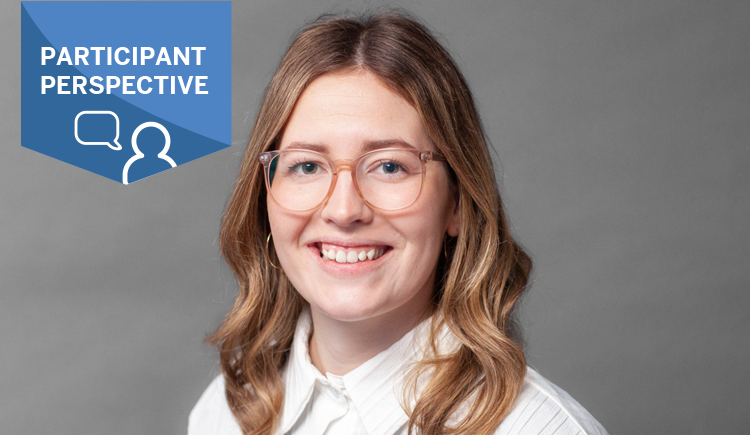
If you’re an investigator tackling a new research area, it’s important to start your efforts by conducting an evidence synthesis—or review and compilation—of the published research and literature that already exist on your topic. An experienced information or research specialist through an academic library or institution can be a valuable resource to help you with this step. This advice comes from Paul Bain, PhD, MLIS, a research and instruction librarian who serves as a liaison to Harvard Medical School (HMS). He also serves on the faculty of the HMS Postgraduate Medical Education Foundations of Clinical Research certificate program.
Bain frequently conducts evidence syntheses for scientists to help them get up to speed on the current findings; this enables them to not only hone their research questions, but also direct their efforts by identifying gaps in the science.
“Evidence synthesis refers to the process of gathering evidence that’s relevant to a clinical or public health problem, analyzing it in some way, and then using that analysis to either summarize the current state of the literature or make a recommendation about an intervention or something having to do with harm,” Bain explains. “If you think about research as being a cycle, an evidence synthesis will be just one point in the cycle, but it’s also a good starting point.”
The Need for a Research Professional
While many investigators are familiar with common research methods and may think they can conduct an evidence review and summarize the findings on their own, often they are not up to speed on how best to compile and summarize the research in the most efficient way.
“When an investigator is thinking of a new area of research, they usually have a good idea about what’s going on, and they are often very versed in the literature that they plan to explore. But working with an information professional can help them refine their questions and can help define the variables that are most important to guide their efforts,” Bain says.
Types of Evidence Synthesis
There are different types of evidence syntheses—and the best one for you depends on the scope of your work and your goals.
One of the most common methods of classic evidence synthesis is conducting a systematic review that can be used to address a hypothesis about a specific intervention or exposure. It can also be used to summarize the evidence on a particular question either in a narrative way or statistically using a meta-analysis.
“You typically would do a systematic review when you realize that the body of evidence has grown large enough to summarize. You might also use this format if you were contemplating a new clinical trial or a new cohort study, and you want to make sure that you aren’t being duplicative,” Bain says.
But, if you are exploring a research question where the variables are not well defined at the outset, he points out that a scoping review would be a better approach. A scoping review is similar to a systematic review, but it has more flexibility to accommodate the unknowns that exist. A scoping review can be a good choice when you want to map out the literature and use the findings to set a research agenda to guide your efforts.
“If you were exploring an area and you wanted to do some research, you might do a scoping review to understand the questions that are most important, as well as to discover gaps in the literature and discover what isn’t known,” he points out. “Another way to look at it is that a systematic review is testing an established hypothesis, while a scoping review is a way of actually discovering a hypothesis.”
Setting Realistic Expectations for Evidence Synthesis
While the results of an evidence synthesis (either a systematic review or a scoping review) can be crucial to your efforts, many people underestimate the amount of work involved in the process. Most evidence synthesis projects end up being large-scale, time-intensive projects that can span around 18 months—from protocol to publication—and require an understanding of how to effectively search literature databases and how to assess the quality of the results you find. This is where the assistance of an information specialist can be so valuable.
“I think the most important thing is to start working with an information professional very early in the process, even before you figure out what the question you are trying to answer is,” Bain says. The information professional serves the same kind of purpose as a statistician or a methodologist. They can be instrumental in helping you define how the study gets done and can provide an important check on the quality of the whole project right from the beginning.
Finding an Information Professional
Where to find the best qualified information professional for your needs can depend on the setting in which you work. Bain suggests looking to academic libraries associated with medical schools, as well as hospital librarians, research firms, and pharmaceutical companies. If you are lacking access through any of these channels, you can look for a contract research organization that has the right capabilities or try to hire a freelance information specialist.
Just keep in mind that the demand for information experts is high. In fact, there is more demand than supply in this area. This means that you could get stuck on a waiting list until someone becomes available.
A Role for AI in Evidence Synthesis?
Bain points out that in the future artificial intelligence (AI) may offer a feasible option to help investigators manage evidence reviews more efficiently, but there will still likely be a need for subject experts to review the findings for accuracy.
“There currently are some tools, like AI classifiers, that investigators can use to screen large numbers of papers—such as screening thousands of records. AI classifiers can learn what you’re looking for and help identify relevant studies, so you can move forward in the process a little more quickly,” Bain says. “There are classifiers that can identify randomized control trials, for instance.” Tools like these can help improve the review process, he says. But to date, they certainly can’t take the place of seeking help and guidance from an information resource professional to support your efforts.


